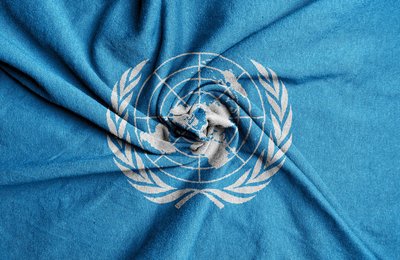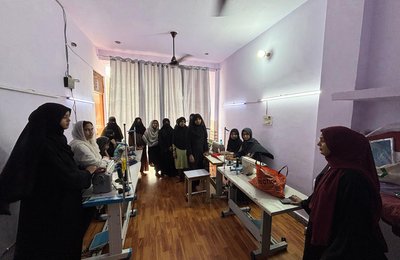Research this month
In pursuit of peace – challenges and opportunities in the central regions
Branded a ‘failed state’, the Somali Region has become known for kidnappings of international aid workers, being the training ground for terrorists, and a base for piracy operations and its recurrent humanitarian crises. This common view overshadows a different dynamic on the ground: a population that is gradually redefining it's context and mobilizing behind the need for peace.
In pursuit of peace (pdf) from Interpeace highlights the work of local peacebuilders in Somalia. The report shows how Somalis are seizing the opportunity presented by an improved security situation to build and consolidate peace.
Curtailing criticism: Intimidation and obstruction of civil society in Uganda
Uganda’s government is putting serious pressure on civil society, particularly on organizations that might be seen as infringing upon the officials’ political and financial interests.
Curtailing criticism from Human Rights Watch documents how civil society in Uganda is being restricted. The report presents evidence of government harassment of organisations working on human rights, governance, and transparency issues.
Sweetening the deal: Adding value to the New Deal for Fragile States through CSO engagement
As mediators between the state and the grassroots, CSOs can play an important role in helping to develop the sense among individuals that they have a stake in these processes.
Sweetening the deal (pdf) is a short policy brief from the North-South institute looking at civil society involvement in the International Dialogue on Peacebuilding and Statebuilding and the New Deal for Engagement in Fragile States. The report discusses both the positive and negative aspects of the current involvement, and makes recommendations for improvement.
Review of the use of ‘Theory of Change’ in international development
‘Theory of change’ is an outcomes-based approach which applies critical thinking to the design, implementation and evaluation of initiatives and programmes intended to support change in their contexts.
Review of the use of ‘Theory of Change’ in international development (pdf) is a DfID-commissioned report looking at how 'Theory of Change' is being used in international development - including peacebuilding activities. It is a detailed review of both the theory and practice of the tool.
Why legitimacy matters to NGO peacebuilding
The extent to which NGOs’ activities are perceived as appropriate by local people affects the outcomes of NGOs’ and donors’ strategies to build peace.
Why legitimacy matters to NGO peacebuilding is a short policy brief discussing how local organisations can maintain legitimacy in the eyes of local people when working with international donors. It draws on findings from Sri Lanka to make wider recommendations.
From the blog
Pakistan: Peacebuilding in an impossible context?
Zahid Ahmed, Insight on Conflict’s Local Correspondent for Pakistan, explains how, caught between the restrictions placed on them by the state and a relationship with the general public framed by suspicion of collaboration with the West, Pakistani peacebuilders need to articulate their work on their own terms. Read more »
Mediation and conflict resolution in Nepal
During and after 10 years of conflict, peacebuilding organisations in Nepal have worked tirelessly to promote peaceful conflict resolution through dialogue, mediation and negotiation. Ambika Pokhrel, Insight on Conflict’s local correspondent for Nepal, looks at how peacebuilding has evolved in Nepal. Read more »
Exploring Touchstone’s ‘If’: the state of peacebuilding
Peacemaking requires the exploration of the possible. Peacemakers challenge us to look at the world as it can be: What if violence was not the means we chose to resolve conflict? Read more »
Civil society as a space for dissent in Sri Lanka
Is civil society being silenced as freedom of expression is restricted in Sri Lanka? Nilanjana Premaratna, Insight on Conflict’s local correspondent for Sri Lanka, looks at the issue and interviews prominent activist Sanjana Hattotuwa. Read more »
Can you be a social entrepreneur but not the boss?
What is the difference between a peace entrepreneur and a person who has devoted their career to building and advocating for peace. Is there a difference? Read more »
Flag day in Sri Lanka
This article was written collectively by people of Tamil, Sinhalese and other ethnicities living both inside and outside Sri Lanka. They argue that new tactics are needed if the plight of the Tamil people is to get the attention it deserves. Read more »
Local peacebuilders ending extremism in Pakistan
Kulsoom Khan from Ashoka, argues that an effective long-term solution to conflict in Pakistan is investment in social entrepreneurship and local peacebuilders. Read more »
When greed is good
Rob Kevlihan, author of Aid, Insurgencies and Conflict Transformation: When Greed is Good, discusses his idea that aid and social services can contribute to peace indirectly by contributing to changes within insurgent movements. Read more »
La Madre Tierra: Guatemala’s resource curse
Despite overwhelming public opposition against the exploitation of Guatemala’s vast natural resources, public demands go unheard. Soluciones Comunitarias asks: how can a government be so quick to protect the material interests of a foreign company and not the rights of its own citizens? Read more »
Somali women and peacebuilding
Mohamed Haji Ingiriis discusses the powerful role women have played in promoting peace in Somalia. During the civil war Somali women have emerged as crucial peacebuilders. New responsibilities opened up for them to take a more active role in their communities and in peacebuilding, leadership and statebuilding processes. Read more »









